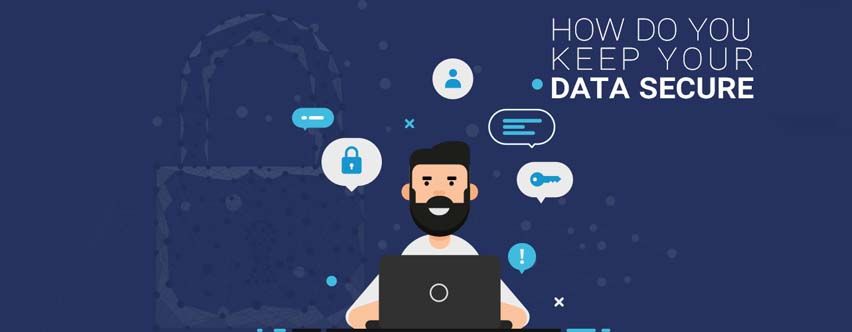In an increasingly digital world, the importance of data security cannot be overstated. Whether you’re an individual using a smartphone or a business managing sensitive customer information, safeguarding your data is paramount. In this guide, we’ll explore essential strategies and best practices to help you keep your data safe.
Table of Contents
Why Data Security Matters
Data security is crucial for several reasons:
- Protecting Privacy: Personal and sensitive information must be protected to safeguard individuals’ privacy.
- Business Reputation: A data breach can severely damage a company’s reputation and trustworthiness.
- Legal Compliance: Many laws and regulations mandate data protection, such as GDPR in Europe and HIPAA in the United States.
- Financial Consequences: Data breaches can lead to financial losses, including fines and legal expenses.
Understanding Data Threats
Before delving into data security measures, it’s essential to understand the threats:
- Malware: Software designed to disrupt, damage, or gain unauthorized access to data.
- Phishing: Deceptive emails or websites designed to trick users into revealing sensitive information.
- Weak Passwords: Easily guessable or common passwords make unauthorized access easier.
- Social Engineering: Manipulating individuals into revealing confidential information.
- Physical Theft: Lost or stolen devices can compromise data security.
Data Security Best Practices
1. Strong Passwords
Use complex passwords with a mix of upper and lower-case letters, numbers, and symbols. Avoid easily guessable information like birthdays or pet names. Consider using a password manager for added security.
2. Multi-Factor Authentication (MFA)
Enable MFA whenever possible. This adds an extra layer of security by requiring multiple forms of verification.
3. Regular Software Updates
Keep your operating systems, applications, and antivirus software up-to-date. Updates often contain security patches to fix vulnerabilities.
4. Encryption
Encrypt sensitive data, both in transit and at rest. Encryption ensures that even if data is intercepted or stolen, it remains unreadable without the encryption key.
5. Secure Backup
Regularly back up your data to a secure location, such as an external hard drive or cloud storage. This ensures you can recover your data if it’s compromised.
6. Employee Training
Educate employees about data security threats and best practices to prevent social engineering attacks.
7. Network Security
Use a reliable firewall and antivirus software to protect your network from external threats.
8. Data Access Control
Limit access to sensitive data to authorized personnel only. Implement user permissions and access controls.
Comparison Table: Data Security Solutions
Here’s a comparison table of popular data security solutions:
| Solution | Features | Pricing |
|---|---|---|
| Antivirus Software | Real-time scanning | Varies (free to paid) |
| VPN (Virtual Private Network) | Encrypts internet traffic | Monthly or yearly subscription |
| Data Encryption Tools | Encrypts data at rest and in transit | Varies (some free options) |
| Password Managers | Secure password storage | Varies (some free options) |
| MFA | Extra layer of authentication | Varies (some free options) |
| Cloud Security Services | Protects data in the cloud | Varies based on usage |
Data Security Stats
Understanding the scope of data breaches can highlight the importance of data security:
- In 2020, there were 3,932 confirmed data breaches, exposing over 37 billion records.
- The average cost of a data breach in the United States in 2020 was $8.64 million.
- Human error accounted for 23% of data breaches in 2020.
Frequently Asked Questions
- What is the most common data breach cause? The most common cause of data breaches is human error, such as clicking on phishing emails or using weak passwords.
- Is it safe to store data in the cloud? Yes, cloud storage can be safe if you choose reputable providers and implement strong security practices like encryption and access controls.
- How often should I change my passwords? It’s recommended to change passwords regularly, ideally every 60-90 days, and whenever you suspect a breach.
- Do I need data security software if I’m just a regular internet user? Yes, data security software like antivirus and a password manager can significantly enhance your online security, even as a regular user.
Conclusion
Data security is a continuous process that requires vigilance and proactive measures. By following best practices, using the right security solutions, and staying informed about the latest threats, you can significantly reduce the risk of data breaches and keep your valuable information safe. Remember, when it comes to data security, it’s always better to be proactive than reactive.


Leave a Reply